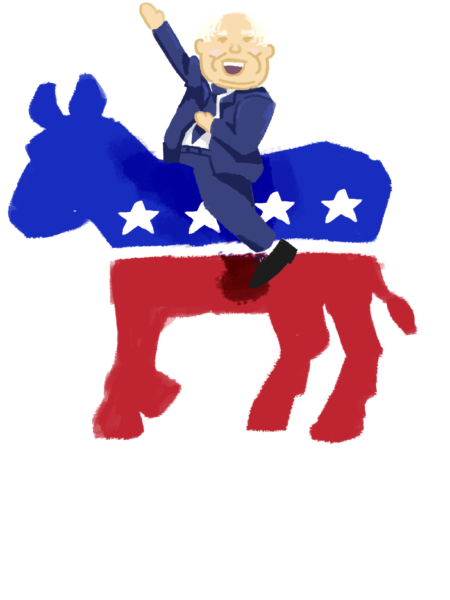
On July 21, President Joe Biden dropped out of the presidential race and Vice President Kamala Harris took over as Democratic candidate. Less than three weeks later, Harris announced Minnesota Governor Tim Walz as her running mate. Both candidates accepted the nomination of the Democratic Party at the Democratic National Convention.
Walz first made headlines when he deemed former President Donald Trump “weird” in a viral social media clip. According to the Associated Press, this catapulted Walz into the running for vice president. Many people enjoy his casual style.
“It’s something more people in the country can relate to,” said senior Dalton Kane. “It doesn’t feel like they’re way up in D.C.. My family really likes Walz, maybe more than they like Harris. It feels like a different perspective.”
This draws a sharp contrast to language that Democrats have traditionally been using to describe Trump, calling him an “existential threat to democracy” amongst other high-level attacks. Additionally, Walz’s background as a high school teacher and football coach helps increase his relatability.
“I know that people didn’t like Hillary because she was very elitist,” said senior Andrew Huang. “People didn’t feel like they could relate to her.”
Walz, despite hailing from a small conservative town in Nebraska, has pushed semi-progressive policies during his time in office, signing into law free meals for all schoolchildren. Harris advances these policies, proposing to cut taxes for middle class families and vowing to strengthen Medicare.
“I don’t want to say they’re super altruistic,” said senior Calvin Chao. “[But Walz] did a good amount for schools and he supports alleviating college fees [and] free [school] lunch. Even if we don’t necessarily know 100% what his intentions are as vice president, it definitely shows more about his character and what he’s willing to do.”
News outlets have criticized the Harris/Walz ticket for a lack of substance in their agenda.
“On both sides, vagueness is a problem,” said government teacher Michael Gibbons. “They’re definitely [running] on personality. It’s horrible but that’s what they’re doing. They’re not running on a coherent, articulated set of policy goals.”
This has led some to ask if this election has emphasized “vibes over value” too much, turning the race into a likeability contest.
“It’s not good, but at the end of the day,there’s not much you can do,”Kane said. “I don’t love Donald Trump’s character, but if he wins, it’ll be with his character. Kamala has been doing a pretty good job of preaching policy, but in [the] media, they haven’t really talked about [it].”
There is also an important distinction between character and personality.
“Personality is presenting a certain way [while] character is more about morals,” Gibbons said. “Potentially, character should tie into policy. If you are really worried about people and you see people in pain and suffering because you’re empathetic, then that should result in policy choices.”
While TikTok campaigns and the increased social presence helps humanize politicians, it also can turn them from policy-based activists to influencers. Students argue that this negatively hurts the political sphere as parties rally around their supposed cult of personality, leading to polarization. In fact, a recent Forbes study shows that the United States media is among the most polarized in the world.
“What you see during the presidential election is a personality war,” Chao said.“It’s concerning when our presidential elections become more about what’s bad about the other candidates compared to what makes the candidates good. That doesn’t inspire confidence, and it … turns people [away] from voting.”
The candidates will be running in the 2024 presidential election taking place on Nov. 5.



